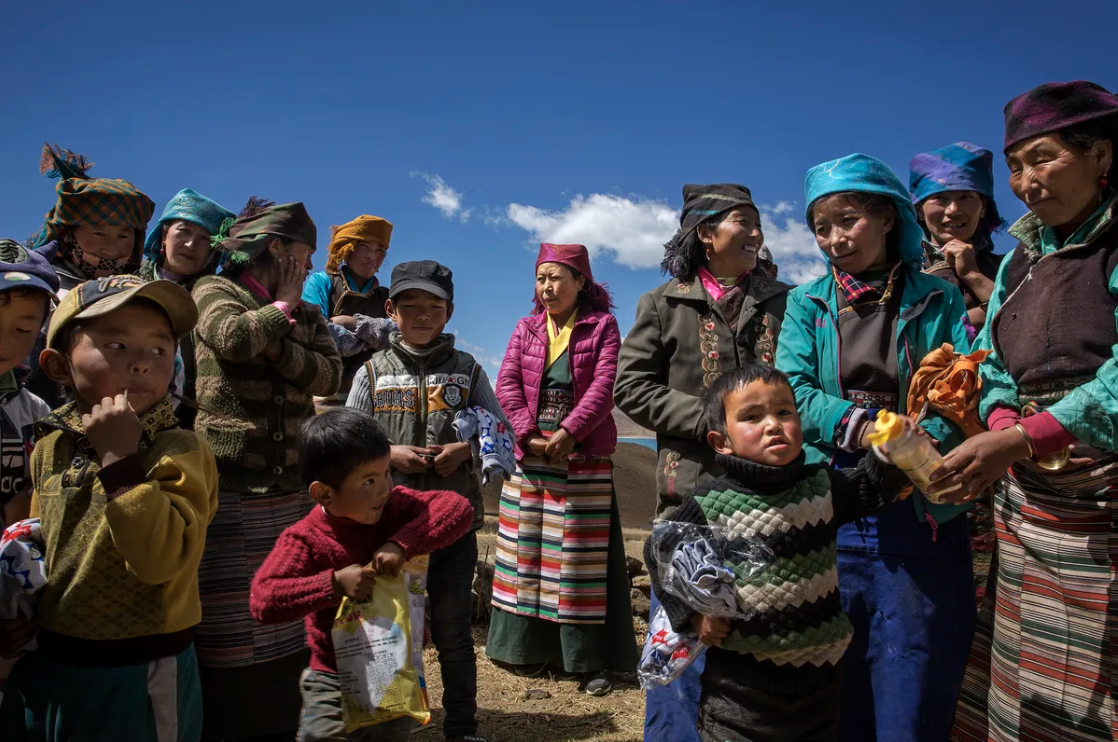UN experts warn a million Tibetan children face ‘forced assimilation’ in Chinese residential schools
Original Article: https://www.theglobeandmail.com/world/article-tibetan-children-residential-schools/
When China annexed Tibet in the 1950s, it promised that the “religious beliefs, customs and habits of the Tibetan people” would be respected. China’s fourth constitution, adopted in 1982, codified the right of all ethnic groups “to use and develop their own spoken and written languages and to preserve … their own ways and customs.”
In the past decade, however, Beijing has taken a far more assimilationist approach, seeking, in the words of Chinese President Xi Jinping, to “bind the people of each ethnic group into a single strand of rope.”
This week, a panel of United Nations experts warned that about a million Tibetan children have been forcibly placed in Chinese residential schools designed to strip them of their language and culture.
“We are very disturbed that in recent years the residential school system for Tibetan children appears to act as a mandatory large-scale programme intended to assimilate Tibetans into majority Han culture, contrary to international human rights standards,” three UN special rapporteurs on education, culture and minority rights said in a statement.
“Tibetan children are losing their facility with their native language and the ability to communicate easily with their parents and grandparents in the Tibetan language, which contributes to their assimilation and erosion of their identity.”
Gyal Lo, a Tibetan scholar and education expert, has seen this firsthand. He was working at a university in southwestern China in 2016 when his brother asked him to come home and check on his grandnieces.
The girls had been attending a new boarding school for children from across Tibet’s Gansu province, where they lived. They spent five days a week at the school, where all lessons were in Mandarin, the official language of China, where it is called Putonghua. When the girls came home, they seemed distant, almost like strangers, Dr. Lo’s brother told him.
For years, Dr. Lo had tried to work within the system to encourage the teaching of Tibetan language and culture and push back against the assimilationist shift he could see developing. But even he was shocked to see the effect on his grandnieces.
“When they played together, they were speaking pure Chinese without a single Tibetan word,” he told The Globe and Mail. “If all the kids grow up like this, can you imagine what will happen for our society, for our nation? Today, the Tibetan situation is getting closer to what Indigenous people experienced in Canada.”
Dr. Lo began travelling around Tibetan regions of China, visiting schools and speaking to teachers and parents. He spent years gathering data, which at first he tried to use to sound the alarm within the Chinese system, writing research papers and speaking at conferences. But he soon found himself disinvited to academic gatherings, his articles rejected. When his contract at the university came up for renewal, he suddenly found himself unemployed.
Other Tibetans have been jailed for speaking out about language issues, and Dr. Lo began to fear for his own safety. In late 2020, he moved to Toronto, where he later began working with the Tibet Action Institute (TAI), after the international NGO published its own report on the growth of boarding schools in Chinese-controlled Tibet.
While residential schools have long existed in Tibet as a way of providing education to children from isolated rural villages or nomadic families, they have increasingly become the norm, even in urban areas. Compared with the 20 per cent or so of Chinese children who attend residential schools, almost all Tibetan students are boarders, the UN experts said.
“It’s part of compulsory education – no one can escape it,” Dr. Lo said.
Lhadon Tethong, a Tibetan-Canadian activist and co-founder of TAI, said the shift toward a more assimilationist approach has been happening for years, but data about the boarding school system were difficult to gather because of the almost-complete blackout of information from Tibet in recent years.
“The system has been built right under all of our noses,” she said.
In their statement, the UN experts said there appeared to be a “policy of forced assimilation of the Tibetan identity into the dominant Han-Chinese majority, through a series of oppressive actions against Tibetan educational, religious and linguistic institutions.”
They cited a government directive in 2021 that called on all ethnic groups to always place the interests of the Chinese nation above all else.
“In this context, initiatives to promote Tibetan language and culture are reportedly being suppressed, and individuals advocating for Tibetan language and education are persecuted,” the UN experts said.
China’s Foreign Affairs Ministry did not respond to a request for comment about the boarding school system. When The Globe previously reported on this issue, the Chinese embassy to Canada accused unnamed media of “hyping up” a false narrative.
“The reports of some Canadian media are pure nonsense and a disgraceful denigration of education in China’s Tibet,” the embassy said. “We welcome objective and fair reports about China, but firmly oppose malicious fabrication and lies.”




Leave a Reply